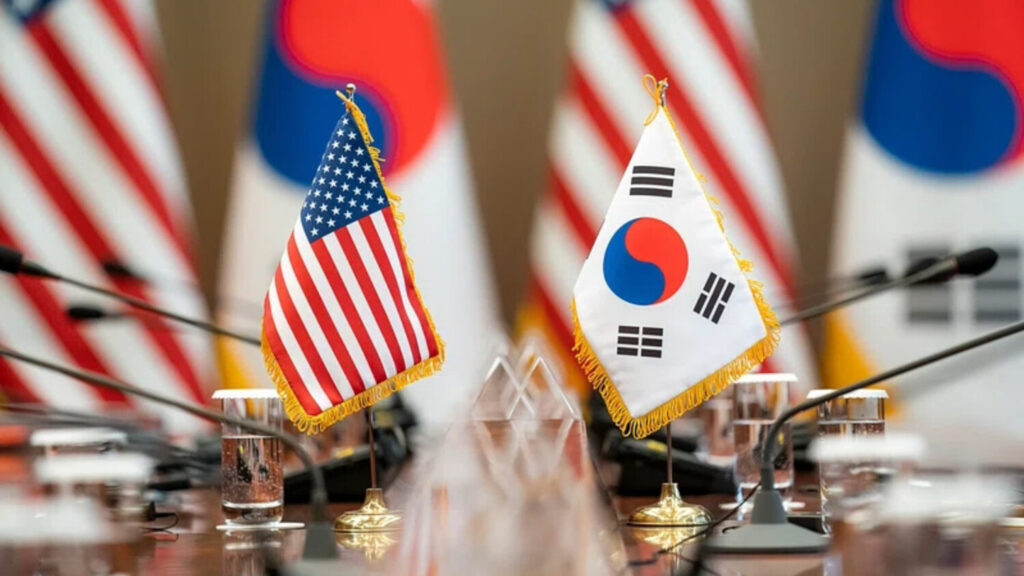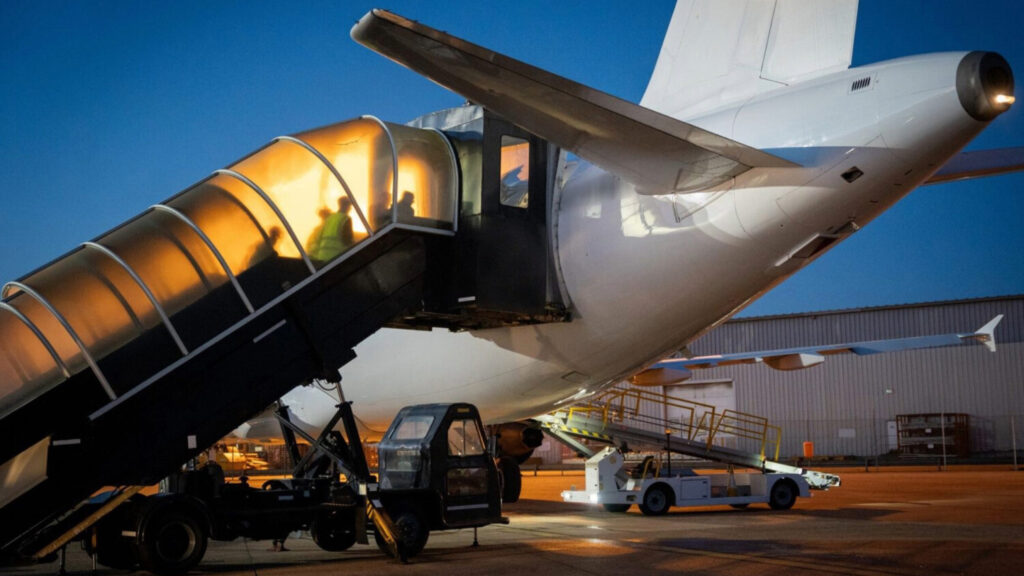The New Scramble for Africa: The Great Power Competition for the Continent
With abundant natural resources, strategic chokepoints and a large population, combined with political instability, a challenging geography and limited finances, Africa is once again a critical arena for the competition between great powers for global dominance (Malcom, 2024).
United States
Recently, the United States has shifted its Africa policy, mostly driven by domestic politics but also to better compete with China. With USAID cuts, Washington has seemingly begun refocusing its efforts on developing trade and supporting stability on the continent (Signé, 2025).
Total trade between the U.S. and Africa was around $71.6 billion in 2024. This relationship is foundational to this trade, with the African Growth and Opportunity Act (Kugler and Washington, 2025) playing a key role. AGOA is set to expire in 2025; this therefore offers both Africa and the U.S. the opportunity to reshape their trade relationship to their advantage (Klobucista and Ferragamo, 2023). The U.S. will likely attempt to secure rare earth metals while African countries will attempt to use the U.S. to balance China and Russia, hoping to secure an advantageous position for themselves between rival great powers.

U.S. AFRICOM stays vital for counter-terrorism efforts and as a training partner. Despite a minor military drawdown, the U.S. continues to play a key diplomatic role, brokering peace deals and fostering greater economic cooperation (Judson, 2024). The recent peace agreement between the DRC and Rwanda reflects the high level of trust that African countries have in the U.S. as a fair and reliable mediator (Psaledakis, D. et al., 2025).
The U.S. position in Africa is stable, but Washington must continually adapt to the evolving trade and security environment, often changing as a result of other great powers pursuing their interests.
Russia
With a total trade of around $24.5 billion in 2024, Russian influence in Africa has primarily been military and security-focused. Moscow has been able to project power through a series of strategic agreements between itself and countries or groups within some of the more unstable regions of Africa.
Previously, the Wagner Group, and now the Africa Corps, have been the instrument for Russian influence; they have provided security assistance in exchange for natural resource rights and market access (Rampe, 2025). While the Wagner Group provided some plausible deniability for Moscow, the Africa Corps is directly under the control of the Russian Ministry of Defence. This newly raised Africa Corps focuses on training and equipping local partners but also occasionally conducts counterinsurgency operations. Moscow has deployed them across Africa, including Libya, Burkina Faso, Mali, Central African Republic and Niger, often filling the security vacuum left by the French withdrawal from the Sahel (Karr and Tyson, 2025).

In exchange for this security assistance, the Russians have been granted exclusive control over key natural resources. These have included oil and natural gas concessions in Libya, mineral and gold mining in Mali and the CAR as well as access to uranium deposits in Niger (Droin and Dolbaia,2023). With control over these resources, Russian influence will grow not only in Africa but globally. Moscow will be able to gatekeep resources and leverage its dominance for advantages in other areas, security arrangements in Europe or Central Asia.
The ability of Moscow to use its hard power in a pragmatic way to project power and challenge Western influence on the continent is clear. Russia will remain an influential player in deciding the security arrangement of the continent, and the Sahel region in particular. Great powers will always be able to rely on their hard power to carve out influence for themselves.
China
China’s engagement with Africa has primarily been economic cooperation. While trade has grown in recent years, reaching $295.6 billion in 2024, Beijing’s primary focus has been on making strategic investments in infrastructure and natural resource projects.

Through various programmes and initiatives, Beijing has expanded its political and economic reach across Africa, with 52 of the 54 countries having signed a Memorandum of Understanding (MoU) with China. Investments include infrastructure projects, rare earth metal mines and hydrocarbon exploration and exploitation efforts. Notable projects include the Maputo–Katembe Bridge in Mozambique, which was 95% funded by Chinese loans and replaced the existing expensive ferry route (Nhampossa, 2018). Similarly, Beijing has invested $1.4 billion in the renovation of the Tanzania-Zambia Railway (TAZARA), which is vital for regional trade and the export of minerals (Tanzania-Zambia Railway Authority, 2024).
With regards to military and security cooperation, China has played a minor role compared to the U.S. and Russia. While China has become a major arms supplier with around 70% of countries running Chinese equipment, it only possesses a single base on the continent in Djibouti, which engages in anti-piracy operations in the Gulf of Aden (Nantulya, 2025). There are, however, indications of a plan for an added base in the Gulf of Guinea in Western Africa (Ditter, 2024).
For China, Africa remains important not only as a source of natural resources and energy but also as a growing market for its exports. Additionally, providing a greater military footprint across Africa, at a very low cost to Beijing itself, could help overextend already constrained U.S. resources and personnel, thereby potentially shifting the balance in the Indo-Pacific region.
For the primary great power, the U.S., Africa remains a theatre which must not be neglected. While the benefits of heavy U.S. engagement in Africa are limited to natural resources, the costs of not engaging with Africa are high. If other powers establish a secure foothold on the continent, they may leverage their gains against the U.S., for example gatekeeping vital rare earth metals.
For the other great power, Russia, Africa provides a great opportunity to project power and remain influential on the global stage at an affordable cost. Advantages and leverage gained in Africa can be exchanged for concessions in Europe, the Middle East or Central Asia.
For the rising great power, China, Africa holds tremendous potential. With vast unexploited natural resources and a large young population, Africa could help China in its economic competition with the U.S. With its strategic chokepoints vital for global trade and maritime traffic, Africa allows for China to secure its global reach militarily while overextending its rivals.
Bibliography
- Ditter, T. (2024) “Africa is China’s Testing Ground for Overseas Military Missions.” Center for Naval Analyses. Published 10th October 2024. Available at: https://www.cna.org/our-media/indepth/2024/10/africa-is-chinas-testing-ground-for-overseas-military-missions
- Droin, M. and Dolbaia, T. (2023) “Russia Is Still Progressing in Africa. What’s the Limit?” Center for Strategic and International Studies. Published 15th August 2023. Available at: https://www.csis.org/analysis/russia-still-progressing-africa-whats-limit
- Judson, J. (2024) “US to vacate first air base within weeks as it withdraws from Niger.” Defense News. Published 24th June 2024. Available at: https://www.defensenews.com/global/mideast-africa/2024/06/24/us-to-vacate-first-air-base-within-weeks-as-it-withdraws-from-niger/
- Karr, L. and Tyson, K. (2025) “Wagner Out, Africa Corps In: Africa File, June 12, 2025” Institute for the Study of War. Published 12th June 2025. Available at: https://www.understandingwar.org/backgrounder/wagner-out-africa-corps-africa-file-june-12-2025
- C, and Ferragamo, M. (2023) “AGOA: The U.S.-Africa Trade Program.” Council on Foreign Relations. Updated 4th December 2023. Available at: https://www.cfr.org/backgrounder/agoa-us-africa-trade-program
- Kugler, K. and Washington, T. (2025) “How African Countries Are Responding to the New U.S. Reciprocal Tariffs.” Carnegie Endowment for International Peace. Published 5th June 2025. Available at: https://carnegieendowment.org/research/2025/06/africa-us-tariff-economy-agoa?lang=en&utm_source=chatgpt.com
- Malcolm, B. (2024) “Geopolitical Shifts in Africa: Navigating the New World Order.” African Leadership Magazine. Published 20th December 2024. Available at: https://www.africanleadershipmagazine.co.uk/geopolitical-shifts-in-africa-navigating-the-new-world-order/
- Nantulya, P. (2025) “China Widening Its Influence in Africa through Expanded Security Engagements.” Africa Center for Strategic Studies. Published 10th June 2025. Available at: https://africacenter.org/spotlight/china-influence-africa-security-engagements/
- Nhampossa, A. (translated by Tsandzana, D.) (2018) “Mozambique’s new China-funded Maputo-KaTembe bridge, the longest in Africa, comes with high tolls.” GlobalVoices. Published 15th November 2018. Available at: https://globalvoices.org/2018/11/15/mozambiques-new-china-funded-maputo-katembe-bridge-the-longest-in-africa-comes-with-high-tolls/
- Psaledakis, D. et al. (2025) “Rwanda, Congo sign peace deal in US to end fighting, attract investment.” Reuters. Published 27th June 2025. Available at: https://www.reuters.com/world/africa/rwanda-democratic-republic-congo-set-sign-peace-agreement-washington-2025-06-27/
- Rampe, W. (2023) “What Is Russia’s Wagner Group Doing in Africa?” Council on Foreign Relations. Updated 23rd May 2023. Available at: https://www.cfr.org/in-brief/what-russias-wagner-group-doing-africa
- Signé, L. (2025) “A new US-Africa blueprint for Trump amid China’s rise.” Brookings Institute. Published 27th May 2025. Available at: https://www.brookings.edu/articles/a-new-us-africa-blueprint-for-trump-amid-chinas-rise/
- Tanzania-Zambia Railway Authority. (2024) “Successful Signing of MoU for the Concession of TAZARA.” Tazarasite. Published 10th September 2024. Available at: https://www.tazarasite.com/successful-signing-mou-concession-tazara


